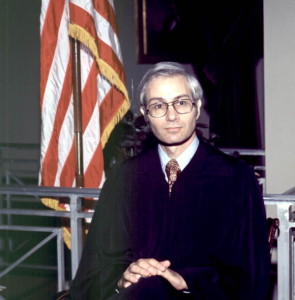Motions Postponing Rendition
Now that we no longer have to worry about abandoning an authorized motion for rehearing by filing a notice of appeal, the appellate courts understandably want to know if there is such a motion pending. The Fifth District recently issued a notice [.pdf] expressly asking parties to inform the court if an appeal should be held in abeyance. Specifically, the court asks that, along with the notice of appeal, the parties “immediately” inform the court of pending motions by filing a notice with the Court. Similarly, parties are requested to file a notice with the court again when the trial court rules on the pending motion, and include a copy of the lower tribunal’s signed, written order disposing of the motion.
To further facilitate this, the Court this week amended Administrative Order AO5D12-2 [.pdf] to require the clerk of the lower tribunal to indicate on its transmittal that a motion postponing rendition is pending.
This just makes sense, and would be good practice in all of the DCAs, even in the absence if a formal request from the Clerk. The easier parties make it for the Court to get to the merits, the better the system works for everyone. The full text of the notice reads:
Informing the Appellate Court of Pending Motions Postponing Rendition at time of Filing the Notice of Appeal
April 10, 2015
Effective January 1, 2015, Florida Rule of Appellate Procedure 9.020(i)(3) has been amended to eliminate the abandonment of motions authorized pursuant to rule 9.020(l) by the filing of a notice of appeal. Rendition of a final order will be delayed by the filing or service of a timely and authorized motion and the filing of a notice of appeal will not result in the abandonment of such a motion but rather the appeal shall be held in abeyance until the filing of a signed, written order disposing of the motion.
Attorneys and parties filing a notice of appeal should immediately inform the court by the filing of a proper notice if a motion postponing rendition is pending so that the case may properly be held in abeyance. Likewise, the attorneys or parties in the case should inform the court by notice upon the lower tribunal disposition of such motions by filing a copy of the lower tribunal’s signed, written order disposing of the motion.
Lower court clerks, lower tribunal clerks, and agency clerks are now required to complete a new section of the electronic transmittal form submitted when efiling notices of appeal to this court which must indicate whether or not a motion postponing rendition is pending in the case below. Clerks must mark this section of the form or the notice of appeal may be rejected until such time as the transmittal form is properly completed.
/s/
____________________________
Joanne P. Simmons, Clerk of Court

